
Edouard Michelin
Edouard Michelin (1859-1940) “It is necessary to break the stone to find the hidden diamond inside” When in 1954 François...
Edouard Michelin

Edouard Michelin (1859-1940)
“It is necessary to break the stone to find the hidden diamond inside”
When in 1954 François Michelin became manager of the Michelin company, he was 28 years old. His grandfather, Edouard Michelin, the founder of the company, died in 1940. François occupied the office of his grandfather Edouard, a small office that remained famous for its sobriety. One day, in the sixties, a retired employee was received by François Michelin in the same office. It was with great emotion that he told his boss that when he was 16 and that his job was to distribute the mail of the company, he was asked one morning to deliver a letter in person to Edouard Michelin. Very impressed, he went to Edouard 's office, who made him come in and said "Hello sir, please come in and sit down". This mark of deference on the part of the big boss had marked him deeply. These words had remained engraved to this day in his mind and in his heart. The founder of the company showed a deep respect for people regardless of their social position.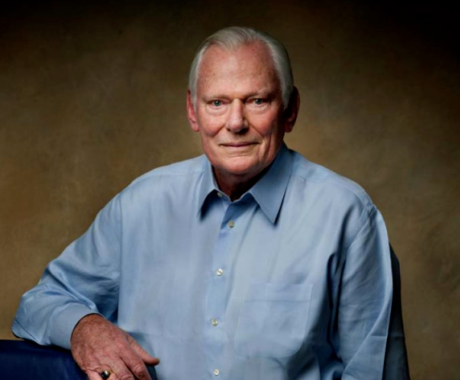
Herb Kelleher
Herb Kelleher (1931-2014) “Men are not 'resources', but an end in themselves.” Herb Kelleher, co-founder and former CEO of Southwest...
Herb Kelleher

Herb Kelleher (1931-2014)
“Men are not 'resources', but an end in themselves.”
Herb Kelleher, co-founder and former CEO of Southwest Airlines, is an example and model of magnanimity in business.

BADEN-POWELL
BADEN-POWELL ( 1857- 1941 ) « An officer can only be a good leader if he loves his men » Baden- Powell,...
BADEN-POWELL

BADEN-POWELL ( 1857- 1941 )
« An officer can only be a good leader if he loves his men »
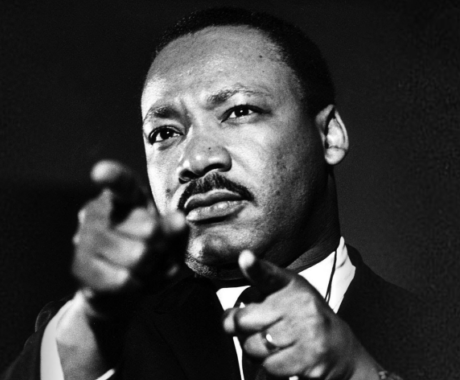
Martin Luther-King
Martin Luther-King (1929-1968) “I have a dream” Martin Luther King is a wonderful example of magnanimity. Magnanimity is the virtue...
Martin Luther-King

Martin Luther-King (1929-1968)
“I have a dream”
Martin Luther King is a wonderful example of magnanimity. Magnanimity is the virtue of persons who are at once philosophers and men of action. King was a non-violent civil rights activist for blacks in the United States. In 1963 he wrote from his Birmingham jail: "When you have seen vicious mobs lynch your fathers and mothers at will, drown your brothers and sisters with pleasure; when you have seen hate-filled policemen cursing, beating, brutalizing and even killing your black brothers and sisters with impunity; when you see the great majority of your twenty million black brothers suffocating in the foul prison of poverty, in an opulent society; when you constantly fight the devastating feeling of being no one; then you understand why we find it so hard to wait. There comes a time when the cup is full and men can not bear to be plunged into the abyss of despair. I hope, gentlemen, that you will understand our legitimate and inevitable impatience. Martin Luther King preached nonviolence, but he did not hesitate to practice the right anger that stimulates daring and engenders action. King tells us that gentleness is a mistake and a sin when justice and common sense require anger. In this same letter from his Birmingham jail he writes:"For years I have heard this word:Wait!.It resonates in my ear, as in every black, with a piercing familiarity. We must see with one of our eminent jurists that "justice too late is denial of justice".I almost came to the unfortunate conclusion that the big obstacle to blacks fighting for their freedom, it is not the member of the White Citizen Counciler, nor that of the Ku Klux Klan, but the moderate White.who thinks he can fix, in good paternalistic, a calendar for the liberation of another man ; who cultivates the myth of time-who-works-for-you and constantly advises the black man to wait for a more opportune moment .We waited for more than three hundred and forty In the constitutional rights of our Creator more and more, I think that bad people use time much more effectively than good people. We will have to repent in this generation, not only for the words and actions of hateful people, but for the dreadful silence of people of good will.We must use time creatively, knowing that the time has always come for do good" Avoir laissé passer l’occasion, ne pas avoir entrepris par peur ou par paresse, voilà ce qui fait souffrir plus que tout un esprit magnanime. Pour le magnanime, le mal ce n’est pas le mal que font les autres, c’est le bien que lui, personnellement, ne fait pas. Un cœur magnanime ne craint pas l’erreur : il craint l’inaction. Martin Luther King was a melancholy daring.His regular fits of melancholy prevented him from overcoming his fears and getting into action. This deeply contemplative man was the first to fight for the rights of black citizens in the United States. He organized the march to Washington for work and freedom which was a huge success. More than 250,000 people of all ethnicities met on August 28, 1963 in the face of the Lincoln Memorial, in what was the largest protest ever held in the history of the US capital. The highlight of this march was King's speech "I have a dream". This statement is considered one of the best speeches in American history. King improvised, "I'm telling you here and now, my friends, though, yes, although we face challenges today and tomorrow I always have that dream: it's a deep-seated dream in the world. American ideal. I dream that one day our country will rise and live fully the true reality of its creed: "We hold these truths to be self-evident that all men are created equal". Martin Luther King tells us that leadership begins with the dream. The dream is indeed the essence of magnanimity. Leaders are dreamers whose dreams translate into action. The dream of pusillanimity is a chimera. The dream of the magnanimous is a reality: it is directed towards action. On April 3, 1968, the day before his assassination, King he delivered a poignant speech with premonitory resonances: "I do not know what will happen now. We have before us difficult days. But I do not care what will happen to me, because I went to the top of the mountain. I do not worry anymore. Like everyone else, I would like to live a long time. Longevity has its price. But I do not care. I just want the will of God to be done. And it allowed me to reach the top of the mountain. I looked around me. And I saw the promised land. I may not enter it with you. But I want to let you know tonight that our people will reach the promised land. I'm happy tonight. I do not worry about anything. I do not fear any man. My eyes have seen the glory of the coming of the Lord." Martin Luther King was a dreamer and actor, a man of grandeur and service. He infused into the heart of every American black a high sense of his own dignity. And that's what leadership is all about.
Jerome Lejeune
Jerome Lejeune (1926-1994) “Defend the scientific truth and the great moral truth that follows: here is my mission”. Jerome Lejeune...
Jerome Lejeune

Jerome Lejeune (1926-1994)
“Defend the scientific truth and the great moral truth that follows: here is my mission”.
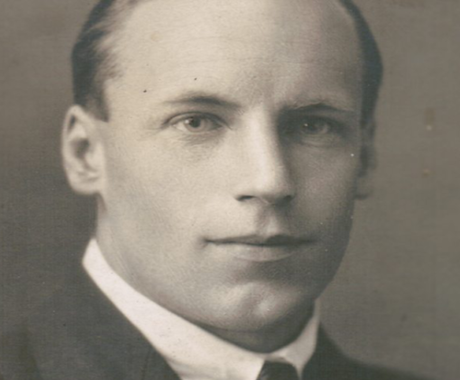
Eric Liddell
Eric Liddell (1902-1945) “God made me fast”. Eric Liddell, the Scottish athlete who won the 400m gold medal at the...
Eric Liddell

Eric Liddell (1902-1945)
“God made me fast”.
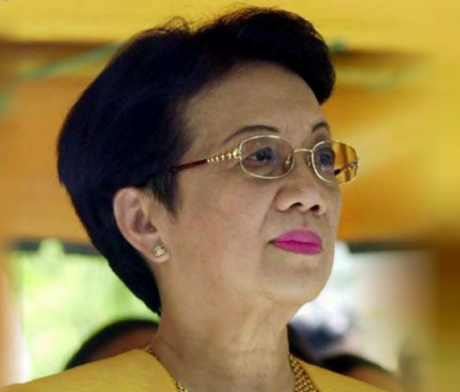
Corazon Aquino
Corazon Aquino (1933-2009) “ Without true values, a democracy is only a confederation of lunatics. ” Corazon Aquino, President of...
Corazon Aquino

Corazon Aquino (1933-2009)
“ Without true values, a democracy is only a confederation of lunatics. ”
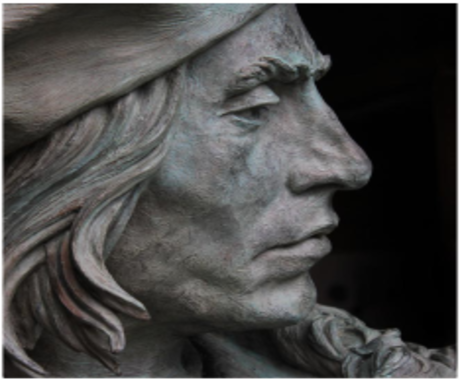
Thomas More
Thomas More (1478-1535) “The purity of my conscience.That's the source of my jubilation” To remain true to his conscience, Sir...
Thomas More

Thomas More (1478-1535)
“The purity of my conscience.That's the source of my jubilation”

Alexandre Solzhenitsyn
Alexandre Solzhenitsyn (1918-2008) “I wanted to be the memory ... the memory of a people victim of an unspeakable tragedy.”...
Alexandre Solzhenitsyn

Alexandre Solzhenitsyn (1918-2008)
“I wanted to be the memory ... the memory of a people victim of an unspeakable tragedy.”

Fiodor Dostoïevski
Fyodor Dostoevsky (1821-1881) " The man is an enigma. This enigma must be exposed ". At the age of 18,...
Fiodor Dostoïevski

Fyodor Dostoevsky (1821-1881)
" The man is an enigma. This enigma must be exposed ".

Nelson Mandela
Nelson Mandela dedicated his life to the non-violent struggle against the system of racial segregation known as Apartheid in South...
Nelson Mandela

Nelson Mandela dedicated his life to the non-violent struggle against the system of racial segregation known as Apartheid in South Africa. On August 5, 1962, he was arrested by the police and sentenced to life imprisonment. He refused to be released to remain consistent with his principles. After 27 years in prison, he was released on February 11, 1990. He was awarded the Nobel Peace Prize for peacefully ending the apartheid regime.
Mandela had a deep sense of his mission: to achieve freedom not only for himself, but also for other men. He states in his autobiographical work “Long Walk to Freedom” (1996): ”for to be free is not only to cast off one’s chains; it is to live in a way that respects and enhances the freedom of others”. And also “What matters most is not so much the fact that we have lived. It is the difference we have made in the lives of others that will determine the meaning of the life we have led.”
Nelson Mandela had a big heart. His goal was not only the liberation of his oppressed black brothers, but also his fight for the oppressing white minority: “The oppressed and the oppressor are both dispossessed of their humanity. When I walked through the prison gates, that was my mission: to free both the oppressed and the oppressor. “(Long Walk to Freedom)
Our hero firmly believes in the goodness of man. In a letter to his wife Winnie, August 1, 1970, he states, “There will always be men of good will on earth, in every country, even in ours.” And again in his autobiographical work already quoted, he adds: “I always knew that deep down in every human heart, there is mercy and generosity.. No one is born hating another person because of the color of his skin, or his background, or his religion.”
Mandela’s personality is characterized by great fortitude imbued with optimism and humility:
“Character is measured in difficult situations, a hero does not bend even under the harshest of circumstances.” (Long Walk to Freedom)
“I am fundamentally an optimist. Whether that comes from nature or nurture, I cannot say. Part of being optimistic is keeping one’s head pointed toward the sun, one’s feet moving forward. There were many dark moments when my faith in humanity was sorely tested, but I would not and could not give myself up to despair. That way lays defeat and death.” Thoughts for Myself: The Authoritative Book of Quotes (2011)
“It is better to lead from behind and to put others in front, especially when you celebrate victory when nice things occur. You take the front line when there is danger. Then people will appreciate your leadership.”
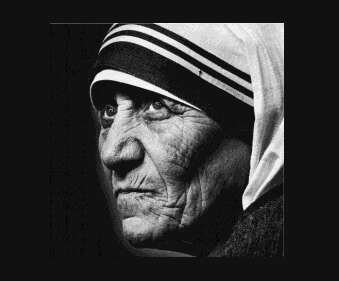
Mother Teresa
“I wanted to become a Mother to the poorest of the world’s poor” It was in September of 1946 that...
Mother Teresa

“I wanted to become a Mother to the poorest of the world’s poor”
It was in September of 1946 that Mother Teresa received the great inspiration of her life in a railway carriage bound for Darjeeling while contemplating the poverty all around her—to become a mother to the poorest of the world’s poor.
Mother Teresa’s mission was to become a mother to the poorest of the world’s poor, to share their interior desolation, to demonstrate to the entire world the infinite love of God for each and every person. “A beautiful death,” she said, “is for people who lived like animals to die like angels—loved and wanted.”
Many of the people around her tried to pressure her into using decision-making criteria proper to philanthropic organizations, although the organization she founded in 1950 was not a philanthropy, but a religious order. Teresa resisted this pressure. She never wavered. Had she followed their advice, her organization would have become a successful healthcare provider, perhaps, but would have died out as a religious congregation. Because Teresa never forgot her mission, her Congregation became in a few decades one of the leading religious orders in the Catholic Church. At the time of her death, Mother Teresa’s Missionaries of Charity had over 4,000 sisters operating 610 missions in 123 countries.
Mother Teresa of Calcutta, one of the greatest religious leaders of the twentieth century, stood courageously against the trend of the times. In her Nobel Prize lecture in 1979, she linked her defense of the unborn to the cause of peace: “I feel the greatest destroyer of peace today is abortion, because it is a direct war, a direct killing—a direct murder by the mother herself. Because if a mother can kill her own child, what prevents me from killing you and you from killing me?”
Mother Teresa is an example of magnanimity (she had a dream and a mission), of humility (she was a great servant of humanity), and courage (she never wavered).




